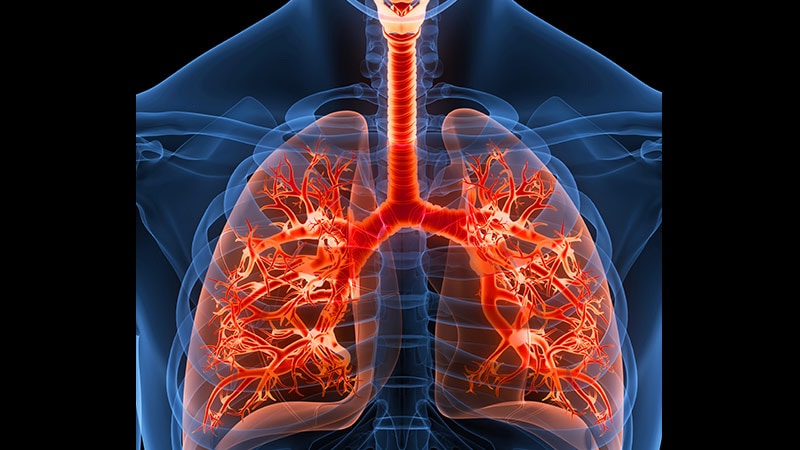Takeaway
- The presence of persistent or chronic, but not acute, viral infections including Epstein-Barr virus (EBV), cytomegalovirus (CMV), human herpesvirus 7 (HHV7) and human herpesvirus 8 (HHV8) was associated with a significant increase in the risk for idiopathic pulmonary fibrosis (IPF), but not exacerbation of IPF.
Why this matters
- Findings suggest that viral infection could be a potential risk factor for IPF.
Study design
- 20 case-control studies (n=1287; 634 IPF cases and 653 controls) reporting the effects of viral infection on IPF met eligibility criteria after a search across electronic databases.
- Funding: National Natural Science Foundation of China project and others.
Key results
- Viral infection was significantly associated with an increased risk for IPF (OR, 3.48; 95% CI, 1.61-7.52; P=.001; I2, 76.0%) but not exacerbation of IPF (OR, 0.99; 95% CI, 0.46-2.12; P=.988).
- The risk for IPF was significantly increased with viral infection including:
- EBV (OR, 9.83; 95% CI, 4.22-22.91; P<.001);
- CMV (OR, 2.45; 95% CI, 1.29-4.66; P=.006);
- HHV7 (OR, 2.48; 95% CI, 1.14-5.40; P=.022); and
- HHV8 (OR, 8.88; 95% CI, 2.70-29.14; P<.001).
- No significant association was observed between HHV6 infection and the risk for IPF (OR, 3.16; 95% CI, 0.41-24.50; P<.270).
Limitations
- Heterogeneity among included studies.
- Sample size in some subgroups was small.
References
References


